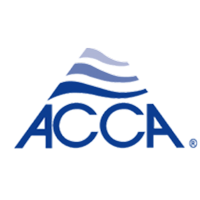Buying your first home is thrilling. You’re likely juggling a dozen things or more about making the right choice. We believe that gaining insight into your potential new HVAC system is crucial. The property’s HVAC system represents a significant investment and source of potential long-term costs, illustrating why a detailed inspection is important for first-time homebuyers.
In the following guide, we’ll share seven tips for learning everything you can about a home’s heating and cooling system. And if you want a more in-depth opinion from the pros, feel free to call J & J Air Conditioning. Our experienced team can share details about your options with industry insights you won’t find elsewhere.
1. What Type of HVAC System Is It?
Start by determining what kind of HVAC system the home includes. Furnaces tend to last longer compared to air conditioners, and some of the latest types of HVAC equipment like heat pumps feature average life spans that are even longer. Knowing the make and specific model provides a clear understanding of how much routine maintenance it might need.
2. How Old Is the Current HVAC System?
Another good idea is to find out how old the HVAC system is when you’re considering a new home. On average, HVAC systems last about 10-12 years. Knowing when it was installed helps you prepare for any needed servicing or considerations if it might eventually stop working. Older systems may be more vulnerable to problems, so planning ahead of time for a replacement unit could be necessary sooner than you thought.
3. Is the Warranty Still in Effect?
Be sure to check the HVAC system is covered by a warranty. If it is, that’s great news because it can help with maintenance expenses. HVAC warranties often cover parts and labor, but it’s important to note that details will vary. Make sure you go over any terms that aren’t familiar to ensure you understand your coverage and any possible out-of-pocket costs.
4. When Was the Last Time It Received Maintenance?
Don’t forget to check the maintenance history of the HVAC system, if the records are available. This service history can demonstrate if there have been regular problems or how often a tune-up was scheduled. Ask about records for key tasks such as changing the air filter, which means it enjoyed more regularly scheduled tune-ups.
5. Are You Aware of the System’s Energy Efficiency Ratings?
Selecting a system with high energy efficiency isn’t just smart; it leads to more manageable utility bills and a smaller environmental impact. Try and find the seasonal energy efficiency ratio (SEER) ratings for air conditioning and the annual fuel utilization efficiency (AFUE) for furnaces. Higher SEER ratings mean better cooling across the entire season, while strong AFUE ratings illustrate that the fuel is more effectively burned for useable heat.
6. Have You Noticed Signs of Problems After Your Own Inspection?
Even without heating and cooling expertise, it’s still a good idea to inspect the HVAC system yourself. Keep an eye out for any concerning items that weren’t mentioned by the seller or real estate agent. This includes strange noises, stubborn patches of the house that are too hot or cold and attempts at concealing any visible damage.
7. Have You Asked Your Local HVAC Professional?
If you’re unsure about the overall state of the HVAC system, it’s never a bad idea to get a professional opinion from trained HVAC professionals. They can spot things you might not, including leaking coolant, bad electrical connections or inefficient ductwork.
A Call with J & J Air Conditioning Simplifies Your Home-Buying Journey
Finding your first home should be thrilling, and J & J Air Conditioning can ensure yours is too. Get in touch with us at 254-355-3833. We can go over the details about how our HVAC services help make this process smoother, giving you what you need to step into your new home with confidence.

